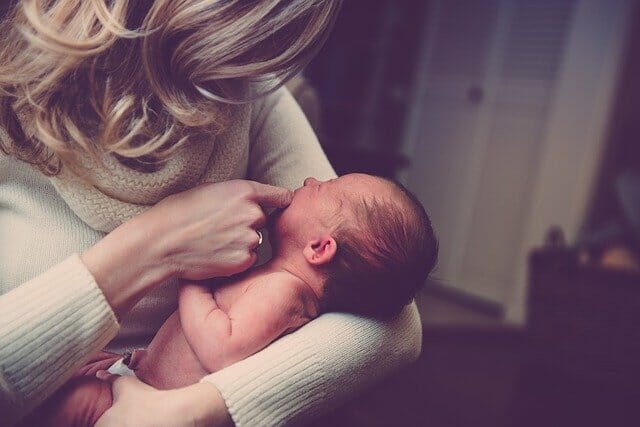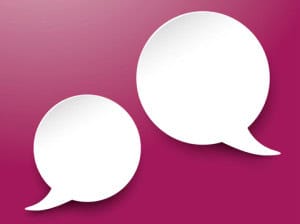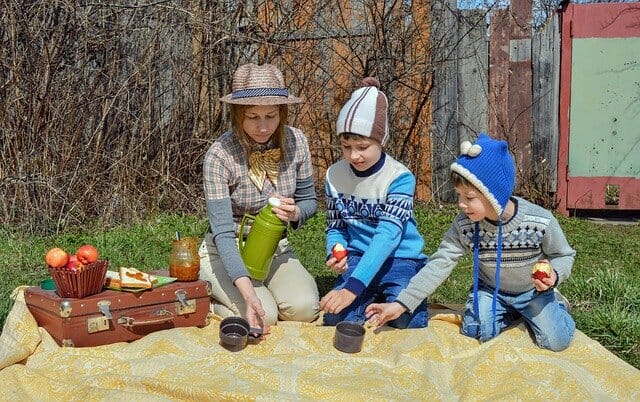
1000 English collocations e-book
HAVE is one of the most common verbs in English, and we use this word in many different ways! In today’s lesson, you’ll learn 30 different collocations with have. These are the typical combinations of words that native speakers use.
Today I’ll show you the collocations and some example sentences. I would also encourage you to create your own sentences using these collocations, because this will help you remember them better.
A lot of students tell me they know a lot of English words, but they have a hard time putting the words together. Learning collocations will help you put words together in a correct way, in a way that sounds natural. You can learn over 1000 common collocations inside my e-book – just click on the link to learn more.
Okay, let’s look at these common collocations with have!
have children / have kids / have a baby
You can have children / have kids / have a baby. But there are a couple important details here – you can use have children / have kids in two ways:
- When you already have children in your family:
I have three kids. Do you have any children? - When you’re thinking about or planning to have children in the future:
We’re hoping to have children next year. I’d like to have kids before I’m 30.
The expression “have a baby” refers to the actual event of giving birth to a baby:
- She’s 8 months pregnant. She’s going to have a baby soon.
- I had a baby last year.

have + an illness, have surgery / have an operation
We often use “have” with illnesses, both minor and major. You can have a headache, have a cold, have a fever, have allergies, have the flu. You can also have cancer, have a stroke, have a heart attack.
- I can’t concentrate very well when I have a headache.
- He just found out that he has lung cancer.
- Call an ambulance – I think she’s having a heart attack!
We also say have surgery and have an operation – these mean the same thing, referring to a medical procedure in which the doctors go inside your body to fix something.

have an appointment / interview
We use “have” with appointments and interviews that are already scheduled. For example:
- I have a dentist appointment next Friday.
- My brother had a job interview yesterday – I hope it went well.
have a conversation / talk / chat / discussion
It’s very common to talk about having a conversation/talk/chat with someone:
- This morning, I had a long conversation with my best friend.
- My son is struggling in school. I’m going to have a talk with his teacher about it.
We can also have a discussion, referring to a conversation that is longer and more in detail.
- The managers had a discussion about the best way to grow the business.

have an argument / fight
For communication in which there is conflict, we say have an argument and have a fight:
- My roommates had an argument about whose turn it is to clean the bathroom.
- She had a fight with her boyfriend and she’s still mad at him.
We typically use have a fight for verbal fights, using words to attack each other. With physical fights, actually hitting each other, we typically use get into a fight.
have + events
We can have events like have a party, have a picnic, and have a barbecue.
- We’re having a party next Saturday – want to come?
- My family has a barbecue every year on the 4th of July.

have a good time / have fun / have a blast
Have a good time, have fun, and have a blast all refer to having a good or great experience.
- The kids had a blast at the circus.
- Hope you have fun on your trip!
have difficulty / trouble / a hard time
“Have a hard time” is another way to talk about having difficulty or having trouble:
- I had a hard time understanding that article.
- He’s having trouble logging on to the website – his password isn’t working.
Note that after have difficulty, have trouble, and have a hard time, we use the -ING form of the verb for the action that is difficult.
have breakfast / lunch / dinner / a snack / a drink / a meal
In English, it’s more common to say “have breakfast” rather than “eat breakfast.”
- We had dinner at a nice restaurant for our anniversary.
- I often exercise before I have breakfast.
- The students are having a snack right now.

have faith
We usually use the expression “have faith” not so much in the sense of being religious, but instead in the sense of trusting or having confidence in someone, or being confident and hopeful that something positive will happen:
- I’m sure you’ll do great on the exam – I have faith in you.
- I have faith that scientists will find a cure for this disease someday.
have a chance
To have a chance means to have an opportunity. We can use this in the past or future:
- Please call me when you have a chance. (future)
- Sorry, I haven’t had a chance to reply to all my e-mails yet. (past)
have a feeling / have a hunch
These two expressions don’t actually refer to your emotions, which are also called feelings. To have a feeling or have a hunch means you suspect something to be true… maybe not based on very obvious evidence, but your intuition tells you it’s true.
- My interview was OK but not great. I have a feeling the interviewer wasn’t impressed by my experience.
- I’m not sure who broke the window, but I have a hunch it was my neighbor’s 8-year-old son who loves to play baseball in the yard.

have feelings for (someone)
The expression have feelings for someone is different – this means to be interested in someone romantically.
- Bob still has feelings for Susan, even though they broke up years ago.
have a / the day off
We use this expression to talk about a day when we don’t have to work or go to school, or do some other regularly scheduled responsibility. Some people say “have THE day off” when mentioning a specific day:
- I’ve been so busy, I haven’t had a day off for the past two weeks.
- Let’s get together for lunch tomorrow – I have the day off.
Now you know 30 different ways that we frequently use the word HAVE in English! I hope you had fun learning with me today. You can learn many, many more collocations inside my e-book – and it also includes a practice quiz with every chapter. Thanks for watching, and I’ll see you in the next lesson.

